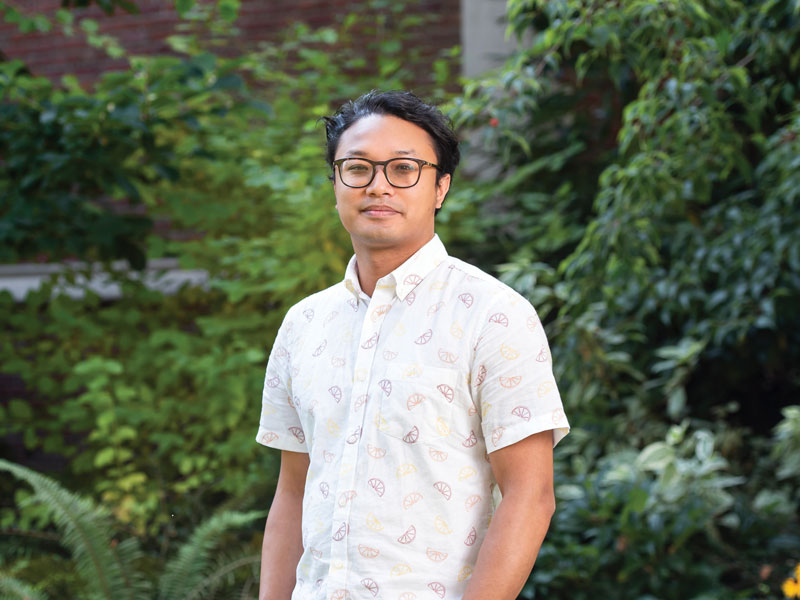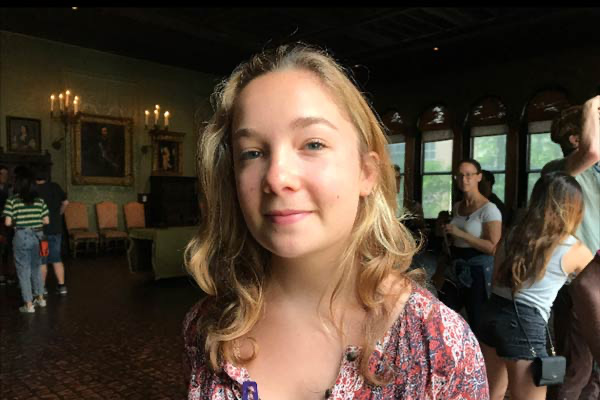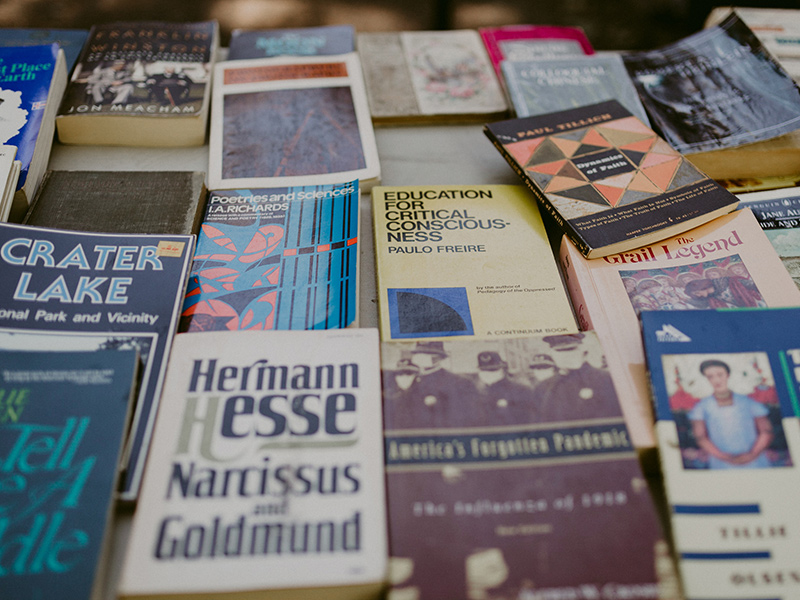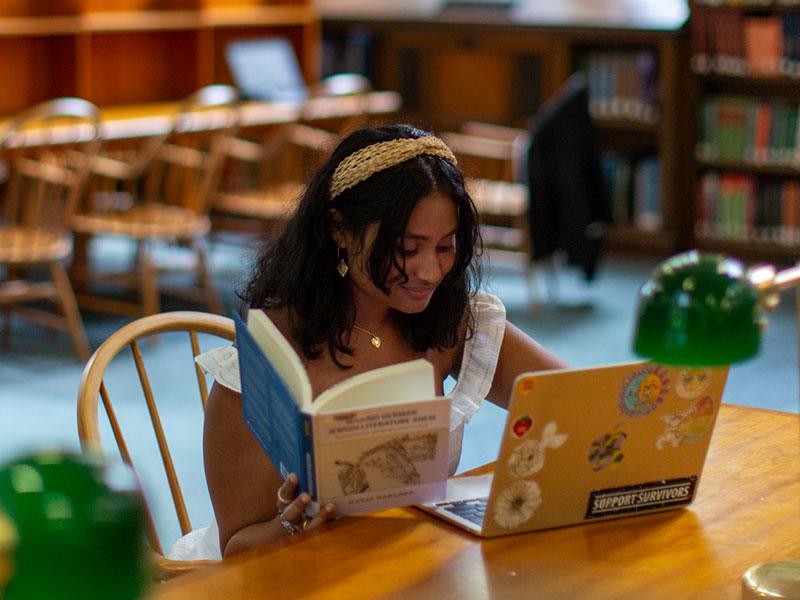The flexibility of the comparative literature major and the avenue for interdisciplinary study it offers enabled me to pursue coursework that was uniquely suited to my academic interests. My senior thesis—on theories of visual perception in twentieth-century French philosophy—was both inspired and informed by the art history, French, history, and political science courses I took alongside my literature classes.
What You’ll Study in the Bachelor’s Degree in Comparative Literature
Reach beyond the boundaries of the national framework to study literature across disciplines in the comparative literature major at Reed. Design your own coursework, either by focusing entirely on classes in the Division of Literature and Languages or combining literature courses with allied fields of study, such as history, philosophy, or religion. The crossover among courses may address a theoretical or historical problem, a subject explored across national canons, or an interdisciplinary line of inquiry. Your path of rigorous literary study will be shaped by thoughtful detours and unexpected connections with humanities and social sciences.
Roadmap to the BA in Comparative Literature at Reed
Explore the many possibilities of Reed’s customizable approach to comparative literature. This flexible, collaborative program allows comparative literature majors to work closely with peers and faculty while developing their unique approach to literary study across disciplines.
Year One
Discover Comparative Literature
Begin your journey with Reed’s introductory course in comparative literature. Learn how linguistic, cultural, and historical boundaries shape our practices of reading and interpretation, and explore key topics like interdisciplinarity, the relationship between aesthetics and politics, and translation.
Start your foreign language studies by taking an introductory course or testing into an intermediate or advanced class.
And, of course, participate in Humanities 110, Reed’s distinctive yearlong course that provides all first-year students with the opportunity to study a range of topics and experience a variety of academic approaches.
Year Two
Chart Your Course
Dive deeper into literature courses like Postcolonial Hauntings or Modern Irish Literature while branching out to explore adjacent fields of study like film, dance, and theatre.
Continue to take foreign language literature classes like Masters and Miracles: Chinese Buddhist Literature and Culture or Early Modern French Literature and Culture. Consult with your adviser as early as possible about study abroad opportunities, and, by the end of your sophomore year, develop an individual plan of coursework in consultation with a member of the faculty committee overseeing the program.
Year Three
Hone Your Focus
Embrace both the flexibility and focus of the comparative literature program by pursuing your unique line of inquiry while continuing to embrace the unexpected inspirations of more advanced classes.
Study the major theoretical movements of the last 50 years in Western Europe and America in Literary Theory, and prepare for the junior qualifying examination, which ensures you have the foundational knowledge required for independent research in your senior thesis.
Finally, take advantage of Reed’s grants that fund independent research, especially during summer break.
Year Four
Show Your Progress
Work with your adviser, faculty mentors, and peers as you complete your senior thesis. Gain inspiration from the breadth and depth of study among comparative literature majors, evident in the wide range of theses pursued. With this rigorous endeavor, you not only contribute to the body of knowledge within your field but also showcase your ability to independently tackle comparative literary analysis. Alumni, faculty, and classmates are excellent resources as you consider your next steps.
Why Study Comparative Literature at Reed College?
Experience All Kinds of “Literary” Arts
This is a uniquely flexible program that allows students to explore works from different languages, cultures, and periods, along with other cultural expressions, including film, art, photography, and graphic novels.
Discover and Pursue Your Own Expertise
The flexibility of Reed’s comparative literature program is great for those who wish to pursue a specific, interdisciplinary line of inquiry, as well as for those who are still searching for their path forward. The freedom to take classes across departments can be pivotal in both narrowing your focus and broadening your viewpoints and curiosities.
Once you’ve taken some time to develop your own coursework, you’ll be on one of two academic paths in the comparative literature major. You may choose to focus on coursework within the Division of Literature and Languages, studying texts, media, and theory in Chinese, English, French, German, Greek, Latin, Russian, or Spanish. Or you may combine your literary study with other disciplines in the humanities or the social sciences, such as anthropology, art history, and political science.
Either way, you are given the tools, the options, and the support to design and pursue coursework that is just right for you.
Careers for Comparative Literature Majors
Reed comparative literature majors learn how to work across disciplines, interpret texts across cultures, and apply theoretical frameworks to better understand all types of people, concepts, and contexts. These skills are applicable to a wide range of career paths, including the following:
- Development coordinator, Mekong NYC
- Junior software developer, Louder Agency
- Gallery associate, Galerie Balice Hertling
- Communications assistant, Regen Projects Contemporary International Art Gallery
- Law student, George Washington University
Achievements of Reed Comparative Literature Students and Alumni
Comparative literature majors have been awarded prestigious fellowships, grants, and prizes.
- Winter International Travel Fellowships
- Mary Barnard Academy of American Poets Prize
- Class of ’21 Award
- Critical Language Scholarship (CLS) Program
- Davis Projects for Peace

Our Comparative Literature Faculty
Professor Kritish Rajbhandari ’12 researches twentieth and twenty-first-century South Asian and African literature, with an emphasis on literatures and cultures of the Indian Ocean. He teaches courses such as Decolonization and the Novel in Africa, South Asian Women Writers, and Postcolonial Hauntings.
For Kritish, the study of literature is inseparable from issues of politics and power. In his classes, he urges students to think about how literature challenges and reorients our understandings of power structures that permeate our society, culture, and minds. He also teaches Reed’s first-year course, Humanities 110, and courses in the interdisciplinary program Comparative Race and Ethnicity Studies.



